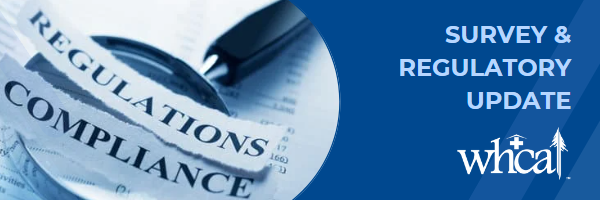Oct 25 2024 | Ombuds Access to Residents and Resident Councils
Washington state is known for its robust advocacy channels for residents living or staying in long term care (LTC) facilities, including assisted living and skilled nursing settings. The Washington legislature specifically calls out the importance of the LTC ombuds in the resident rights statute, stating that the LTC ombuds is to monitor the implementation of the resident rights laws in LTC facilities and ensure that residents are able to exercise their rights. The law also directs the ombuds to consult with regulatory agencies and other groups and organizations to ensure this occurs.
The residents benefit from the onsite visits and support from the state, regional, and volunteer ombuds. While fulfilling their duties as resident advocates, ombuds enjoy unhindered access to residents in our care settings. Likewise, resident councils can serve as a collective advocate for residents in the facility.
OMBUDS ACCESS TO RESIDENTS
It is important for all staff to recognize and welcome ombuds into the facility at any time, including evenings, nights, and weekends. Staff must accommodate the residents to meet privately with their ombuds, ensuring that conversations between resident and advocate are confidential and without staff interruption. The facility must also allow the ombuds to examine a resident’s clinical records when requested.
All staff training on the expectations when working with the ombuds, and their roles in advocating for residents, should be covered in new employee orientation and routinely thereafter.
Should a staff member stop or otherwise prevent an ombuds from entering the facility or visit with a resident or residents, management should take quick action to correct the situation and offer additional training to the staff member on the ombud’s roles and duties. It is important to note that Residential Care Services is required to take enforcement action with an assisted living facility and may take enforcement action with a skilled nursing facility if they have violated the requirements/rules related to discrimination against or willfully interfered with the official duties of the long-term care ombuds.
RESIDENT COUNCILS
Residents should be encouraged to form a resident council or similar in the facility, whereby the group operates as a platform for resident advocacy and is run by residents. If a council or other resident group is formed, the facility must arrange for meeting space. Staff and visitors may attend resident council meetings only at the group’s invitation.
While the Washington state ombuds program does not have a current resident council handbook, The Consumer Voice, the leading national voice representing consumer on issues pertaining to long term care, has a guide for facilities whose residents may be interested in starting a resident council. This resource covers the different roles, council structures, types of issues councils generally address, resident participation strategies, and other resources.
Facility leadership is encouraged to contact your local ombuds to request a presentation on resident rights and discuss ways to engage residents in the development and maintenance of a resident council.
Additional information can be found in the following resources:
RCW 70.129.090: Advocacy, access, and visitation rights. (wa.gov)
Chapter 43.190 RCW: LONG-TERM CARE OMBUDS PROGRAM (wa.gov)
For more questions about resident rights in Washington’s assisted living and skilled nursing facilities, email Vicki McNealley or Elena Madrid at the WHCA office, or call 360-352-3304.

